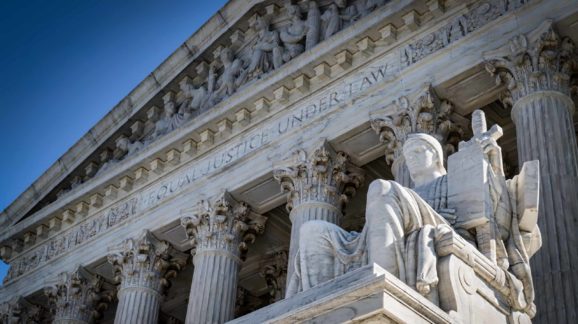Civil forfeiture has become a significant government intrusion in recent years. While it remains a viable instrument for federal agents enforcing customs laws and fighting international crime, misguided policies and misaligned incentives foster abuses and raise grave constitutional concerns.
Each year, federal and state forfeiture programs allow law enforcement to seize more than $3 billion in cash and property from thousands of people – often without ever charging them with a crime. There are also serious questions as to whether civil courts using lower burdens of proof are the appropriate means to enforce government anti-crime policies.
Civil forfeiture further jeopardizes the relationship between police and their communities when vulnerable residents who cannot afford to challenge small-value seizures are targeted. There are also questionable benefits when financially-stressed departments prioritize revenue-generating forfeitures over arrests, drug interdiction, and crime-fighting.
CEI is addressing these issues through its new Forfeiture Reform Initiative: engaging federal and state policymakers to implement much-needed reforms and educating the public about their constitutional rights to stop improper seizures in the first place.
No person should have to fear for their property while engaged in lawful activities or lose it without ever being convicted of a crime.
Featured Posts

Blog
CEI files amicus brief in SCOTUS case to protect homeowners from tax equity theft
On December 8, 2025, CEI filed an amicus brief in the case Michael Pung v. Isabella County, Michigan at the United States Supreme Court. This case…

Blog
Some thoughts on Constitution Day
As I drove into work today, it occurred to me: we so often take for granted the extraordinary power that the automobile gives us. Once…
Fox News
Federal judge rules that 156-year-old ban on at-home distilling is unconstitutional
Fox News cites CEI’s Devin Watkins and Dan Greenberg on Hobby Distillers Association v. Alcohol and Tobacco Tax and Trade Bureau et al: Devin Watkins,…
Search Posts
Blog
EPA Streamlines Infrastructure Approval Process under Clean Water Act
Making good on its promise in Executive Order 13868 to combat the abuse of section 401 of the Clean Water Act by states seeking to block…
Blog
Venezuela and Rwanda: A Tale of Two Countries, Different Paths
The 21st century Venezuela is a failure. It failed because it adopted socialism. Paul Larkin, Senior Legal Research Fellow at the Heritage Foundation, remarked in…
Blog
VIDEO: Ending Police Harassment of Small Business in India
Our friends at the Atlas Network have an excellent new video out about legal reform in India that is helping small businesspeople stand up to…
Blog
Regulatory Costs of Anti-Property Approaches to Environmental Concerns
Environmental regulations transfer substantial wealth and can be subject to the same political failure and regulatory pork-barreling that characterize economic regulation—perhaps more so, given the…
Blog
Warren Wealth Tax Proposal Raises Constitutional Questions
Sen. Elizabeth Warren (D-MA) has proposed a new wealth tax. We don’t know a lot of details on what is being proposed, but what little…
Blog
Courts Should Protect Economic Liberty Rights As Originally Understood
The prohibition on taking a person’s liberty without due process of law is enshrined in the Constitution’s Fifth and Fourteenth Amendments. But what does this…
